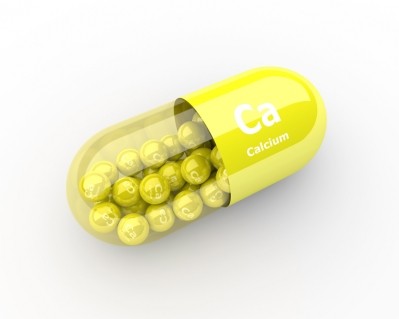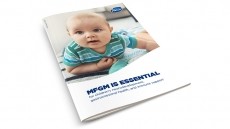EFSA health claim opinion
“Some evidence” not enough, says EFSA as it rejects calcium health claim

In an article 14 opinion, EFSA’s Panel on Dietetic Products, Nutrition and Allergies (NDA) found there was a lack of data to support a claim that beta palmitate boosted calcium absorption in children.
The claimant, the Belgian-based Association for Foods for Particular Uses (IDACE) proposed the claim: “Beta palmitate enrichment contributes to increase calcium absorption” with 0-12 month infants the target market.
While the NDA agreed three small studies showed “some evidence” of the claimed effect, it was not deemed enough, as a, “significant effect on calcium absorption was demonstrated in one study only.”
The NDA therefore concluded, “…the evidence provided is insufficient to establish a cause and effect relationship between the consumption of beta-palmitate and an increase in calcium absorption.”
Dossier details
The IDACE dossier contained 10 human and six animal studies. The NDA scientists rejected four of the human trials for being unrelated to, “beta-palmitate and/or addressed health outcomes other than the claimed effect.”
Another assessed faecal composition but not calcium absorption and was similarly dismissed.
The sixth was a meta-analysis of four other studies that were analysed individually.
In one, the NDA said bone mineral content (BMC) and density (BMD) measurements taken at three months could not act as a proxy for calcium absorption.
“The three remaining studies used calcium balance methods and included measures of calcium absorption: one short-term human intervention study in term newborn infants provided evidence that a high degree of palmitic acid in the sn-2 position of formula triglycerides may increase calcium absorption, whilst the two other studies, did not show such an effect, possibly because of insufficient sample sizes,” the NDA wrote.
“However, these two studies showed that a high degree of palmitic acid in the sn-2 position of dietary triglycerides resulted in a significant decrease in faecal calcium excretion as calcium soaps.”
It said results from the animal studies were able to be extrapolated to infants.
It therefore concluded: “In weighing the evidence, the Panel took into account the biological plausibility of the mechanism by which beta-palmitate could exert the claimed effect and that three small human intervention studies in preterm and term infants provided some evidence that a higher degree of palmitic acid in the sn-2 position of formula triglycerides may increase calcium absorption by decreasing faecal calcium excretion as calcium soaps, albeit a significant effect on calcium absorption was demonstrated in one study only.”
“The Panel concludes that the evidence provided is insufficient to establish a cause and effect relationship between the consumption of beta-palmitate and an increase in calcium absorption.”
The NDA opinion can be found here.















